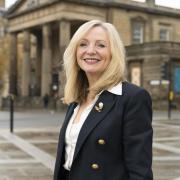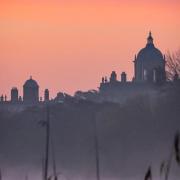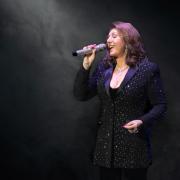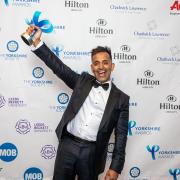Kicking off the new year with a series of concerts aimed at bringing classical music to young people.

mUSIC has been described as the language of the heart. And, in 2016, many broke a little with the deaths of David Bowie, Leonard Cohen and Prince. But their music can still evoke memories and can get us through our own hard times. It’s a cliché but the music does live on.
One of the things our festivals’ honorary president Dame Fanny Waterman DBE once said was there were three domains to music. The first, the great composers ‘who reside in heaven’. The manuscripts they left behind needed the second thing – great musicians who bring them to life. The third? Audiences, who open their ears and ‘hear a glimpse of heaven’.
You don’t have to be religious to appreciate the idea.
The start of a new year for me means the start of our Sunday Series, a blissful season of Sunday morning coffee concerts that feature some of the world’s most talented musicians, breathing life into those enduring composers, Chopin, Bach, Beethoven and more.
Taking us from the wintry months to spring, these Sunday morning sessions offer a little balm. But music is much more than that.
It can be overwhelming reading report after report about the impact of music on our well-being. Sure, we’ve all read about the Mozart effect – how classical music helps everything from a teenager’s concentration to reducing stress. However, for me, music should be more than just an antidote to illness. Taking time out to listen to music should be a form of enjoyment or relaxation. Listening to the great composers of generations past shouldn’t, as it so often is, feel like a chore or a learning experience to pass an exam. It’s an exploration, a chance to imagine what the composer is telling us through their music; using your imagination to find your own connection and, where possible, to relax and let the music wash over you.
So often concerts, particularly chamber music, can feel stuffy. It can feel like sneezing is a sin, let alone shuffling in your seat. That’s why we at the festivals want young people to be able to experience chamber music on their own terms through our Library of Live.
This is a pilot programme that offers young people (aged seven-25) a chance to engage with the arts, with free opportunities to attend our live concerts.
Pick a concert, try it out and if you’re not sure you like it, try something else. No cost, no risk and leave if you don’t like it.
Not everyone liked the music of Prince or David Bowie but it’s likely they listened to a range of artists and made their own choices. The same should apply with classical music. Certain composers aren’t for everyone (personally, I can’t stand Wagner) but there will be piece of music or a composer who, when you hear their music live for the first time, you just know there’s a connection. That’s what the festivals are determined to offer.
So, this spring, why don’t you try a chamber music concert for yourself? The 2017 Sunday Series kicks off with one of the UK’s best loved pianists, Martin Roscoe, on January 15th and concludes on April 30th with another pianist, the Venice-born Alessandro Taverna, who is in his early 30s.
When Taverna reached the final at the 2009 Leeds International Piano Competition, The Independent wrote: ‘The world was suddenly suffused with grave beauty: flawless minutes of poetry.’ He’s since become one of the most interesting pianists of his generation, in worldwide demand.
In between, we have clarinettist Julian Bliss and violinist Francesca Dego, both in their mid-20s.
It often strikes me, as with our Young Musician Series (the clue is in the name) just how young many chamber and classical musicians are.
The music may be centuries old but it’s constantly having new life breathed back into it.
I hope you’ll join us for these eternal melodies as we usher in a new year.





























